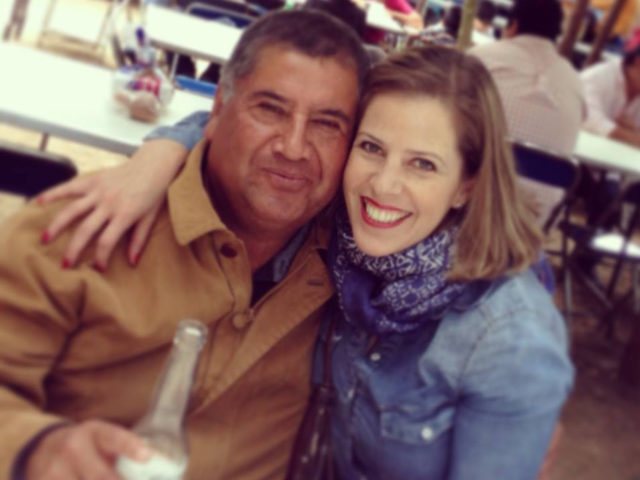
I often think about my father.
I find myself engaged in the most mundane of my daily activities, and I randomly remember some of our conversations. I treasure them like old video cassettes – worried at times that they will fade off if I think about them too much.
My parents got divorced when I was five years old, and I am the eldest of four siblings. My mother, who is from New York, met my father in Oaxaca, Mexico and returned back home after their separation – giving him sole custody over us. I don’t remember much about the days living with both of my parents. It’s as if life started one day when I was at elementary school and all my friends pointed out to me, “Nayeli, your father is outside the school waiting for you.”
Looking back, I guess we were the topic of conversation in other households – the four “gueritos” (a Mexican slang term meaning “light-skinned people”) that just by their physical appearance stood out like a needle in a haystack and were being raised by their father in a time where every kid in my classroom lived with both of their parents, and in the rarest scenario with their mother.
My father was very devoted, but an authoritarian figure who was very strict with us. He believed in what he called “an integral education.” We had to excel both academically, and in sports. He also believed it was very important to have social skills. I remember one day he hit me with a belt for something that was not my fault. At night, when I went to kiss him before bed, he actually apologized. I seized that unusual moment of understanding and asked him why he was always so harsh with us? He told me it was because he knew that as good as we seemed, we hadn’t reached our potential, and that as a father, it would be a crime not to ask for more if he truly knew we had the capacity for it.
I have been living on my own since I was 17, and I always remember that moment. I guess it’s a motor of motivation when things get too comfortable or tough.
My father was born in a village that he’d take us to often, while we were growing up, to visit my grandmother. Once there was a bull running loose on the streets, and my first instinct was to run away from it, but my father got really mad, and he told me, “How can you turn your back on it, Nayeli? In life, you must face the bull in order to see which way to run.”
I learned later that there is even a known phrase, “Grab the bull by the horns,” and hearing that for the first time reminded me of that moment.
When I feel depressed, anxious, or overwhelmed, I force myself to go out for a run. I then start hearing his voice again,”Happiness isn’t permanent, you have to fight for it. This is your life, you can make the best of it, or be a victim. There aren’t any guarantees. Be the best that you can be. Remember time goes by, don’t waste your youth. You are free. I gave you wings to fly, and the skills to survive no matter what. Go out in the world, and be happy.”
Nayeli Chavez-Geller is a reporter and correspondent for Univision television network, and she resides in New York City.